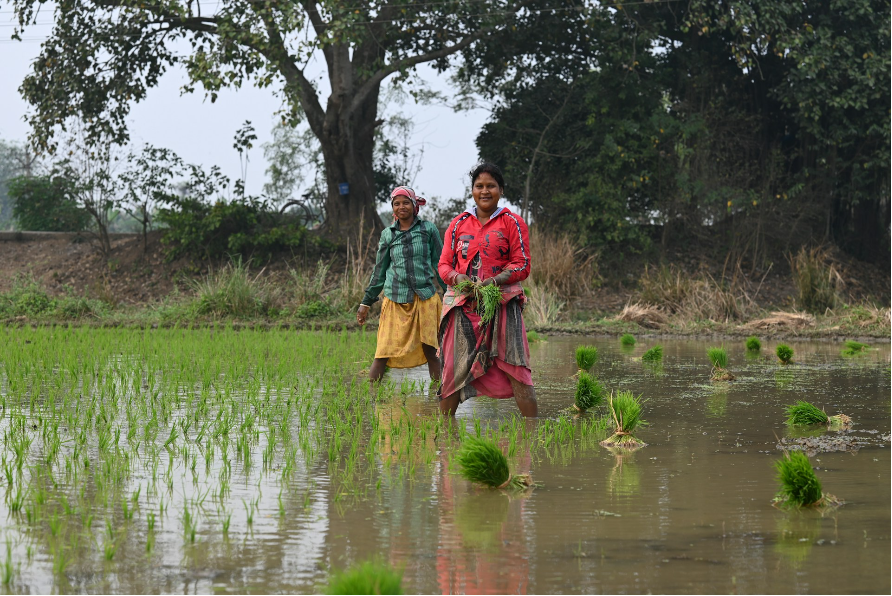In Burigoalini Union of Shyamnagar, bordering the Sundarbans, women farmers like Jamuna Rani Mondal work tirelessly on highly saline land burdened by rising sea levels, unplanned shrimp farms, and canal modifications that deepen soil and water salinity. Unable to depend on traditional agriculture, she now cultivates vegetables in buckets, raised beds, and makeshift platforms—innovations born of necessity rather than efficiency. Women in this climate-vulnerable marsh zone farm amidst frequent cyclones and floods that destroy homes, inundate fields, and salinise drinking water. They often walk kilometers for clean water, or resort to polluted, salty sources. As Jamuna explains, “The heat is unbearable…the crops don’t grow like they used to…we must rebuild due to cyclones and floods,” which profoundly disrupt their lives. Intriguingly, maternal and women’s health has emerged as an urgent, often overlooked concern. Many suffer from gynecological problems believed to stem from prolonged exposure to saline water used for bathing, washing, and drinking. “In recent years, many of us are suffering from uterus problems…we think it’s from the salty water,” Jamuna reveals softly. Research supports this, with high rates of reproductive infections, hypertension, menstrual issues, and even miscarriages reported in saline-affected districts like Shyamnagar and Mongla. Despite these challenges, women are leading resilient adaptations. NGOs and projects like CNRS’s B4RL have offered training in eco-agriculture: drip irrigation using clay pitchers, raised bed gardening, and seed conservation. They’ve introduced fast-growing mangroves like Keora trees and salt-tolerant vegetables—all helping to reclaim food production from saline soils. Community leaders such as Anita Rani Mondal have devised innovative solutions—growing vegetables in cork boxes salvaged from shrimp farms, preserving native seeds, and reviving biodiversity with shared seed banks. Local women’s groups have embraced floating gardens and organic pest controls, improving yields, household income, and community food security. As Bangladesh confronts worsening climate impacts, building women-centered climate resilience is critical. Supporting female farmers with clean water access, healthcare, finance, and scalable agricultural solutions is essential. Without this support, the health and economic security of thousands remain tenuous. These coastal women embody resilience in practice—adapting to saline soil, extreme weather, and health risks with local ingenuity. But real progress requires holistic policies and investments: in water treatment, healthcare outreach, gender-aware climate adaptation, and rural finance. Their survival isn’t just survival—it is a model for sustainable, inclusive adaptation across Bangladesh’s vulnerable coastal belt.
Saline Soil, Cyclones & Health Risks: Women Farmers Resilient
45


